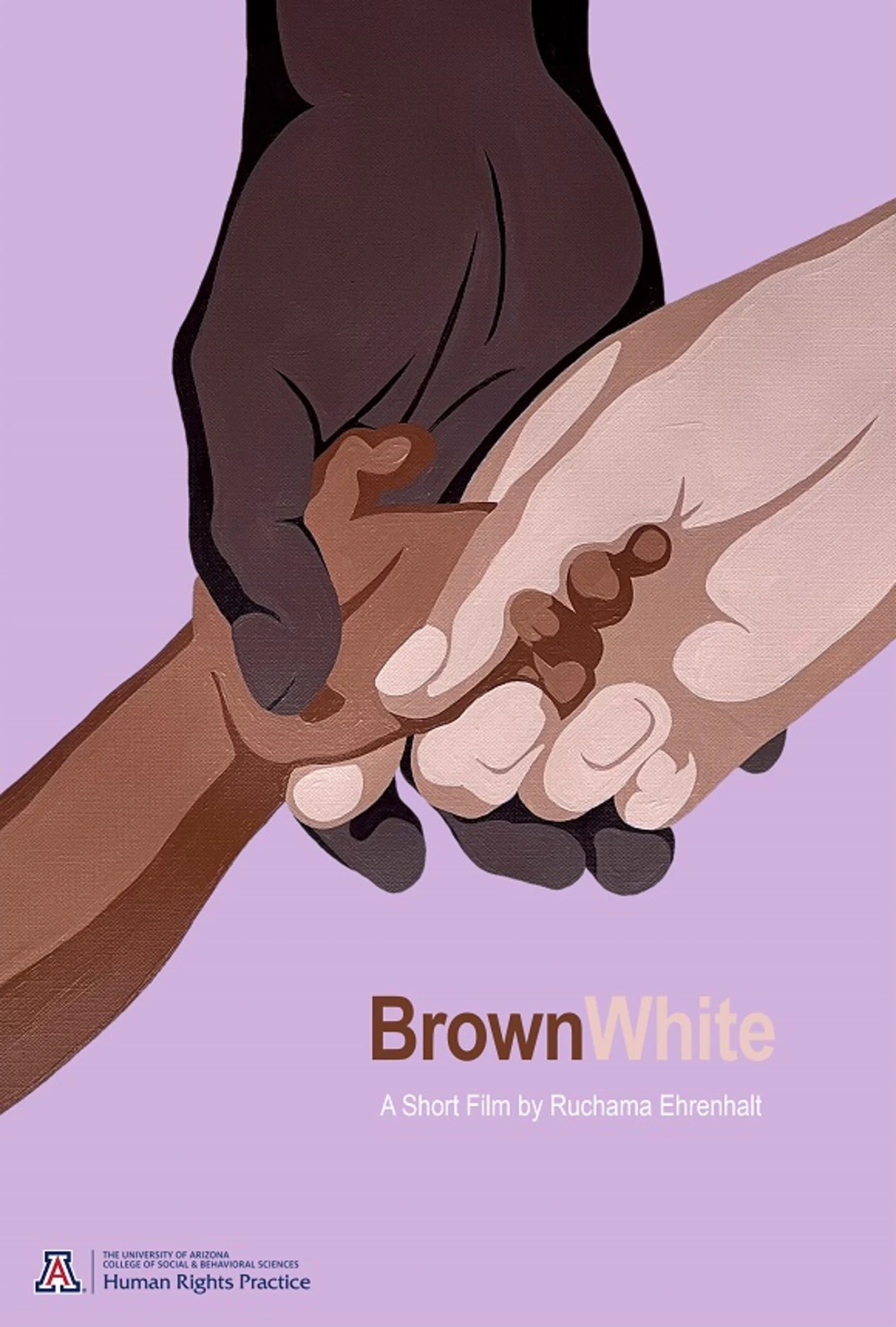"BrownWhite" documentary by HRTS MA student Ruchama Ehrenhalt explores bi-racial identity in Israel

Courtesy of Ruchama Ehrenhalt
I recently finished my M.A. Capstone project, a short film called BrownWhite, to complete the Master of Arts in Human Rights Practice degree. BrownWhite explores the development of identity amongst biracial Israelis from birth to the cusp of adulthood.
Violations of human rights often start with “othering, an implicit and sometimes explicit process of defining someone as being in an “out group” and undeserving of the rights expected to be provided to the “in-group.” The act of “othering” based on birth to a parent with more melanin has generated (and continues to generate) much suffering and profoundly animates questions of identity -- for both the individual in question and the society who views them.
The development of identity does not happen in a vacuum; it is often influenced by the cues of the surrounding society. While the early 20th century “one drop rule” associated with Jim Crow laws in the southern US seems worlds apart from the experience of these biracial Israelis, its spirit continues to haunt: being biracial equals being “non-white.” In a world where being “Brown” or “White” is unfortunately still highly consequential, this film helps us see the struggle of biracial youth in a world where neither “Brown” nor “White” adequately describes them. Below is the Director’s Statement that I wrote for BrownWhite.
As a young child, I made Aliyah (immigrated) to Israel from Long Island, NY with my family. I returned to the USA often, for summer camp and family visits. When I was in Israel, I was “the American”; when I visited America I was “the Israeli.” Why couldn't those who labeled me see me as fully both? The most basic question of identity: “who am I?” yielded an unsettled feeling of wanting to fully identify and belong. In both places, I was labeled based on differences that made me the “other”.
My sister Aderet, a white American-Israeli, married Adis, a black Ethiopian-Israeli. In July 2018 Aderet gave birth to my nephew, Ely Sanbata. At the age of three Ely started noticing and asking questions about his own identity. He did not look like his mother or his father. He noted that his father was the color “brown”, while his mother was the color “white”, and he labeled his own color as “brownwhite”. His identity questions, based on color, recalled my unsettled feelings of not being fully this or that, of being neither here nor there.
That is when I decided to create BrownWhite, a short documentary film from the perspective of Israeli biracial kids that explores how their skin color influences their development of identity. Weaving their lived experiences with findings from research and academic papers, BrownWhite reveals their dilemmas of identity in a world where Brown or White fails to describe them.
BrownWhite is an opportunity to enter the worlds, minds and hearts of biracial Israeli kids and gain a deeper understanding of the way they see and experience the world, and hear the questions they ask. It is an opportunity for children and adults alike to peer into the biracial experience, and to widen the circle of empathy.
We all spend a significant amount of time questioning and exploring who we are and what group(s) we belong to; it is a core part of being human. In some respects, it is a question of survival: which group can I count on? For biracial kids, this question is asked constantly from the inside out, and from the outside in. Before they have the language to ask the question, it is there. Who am I? Where do I belong?

